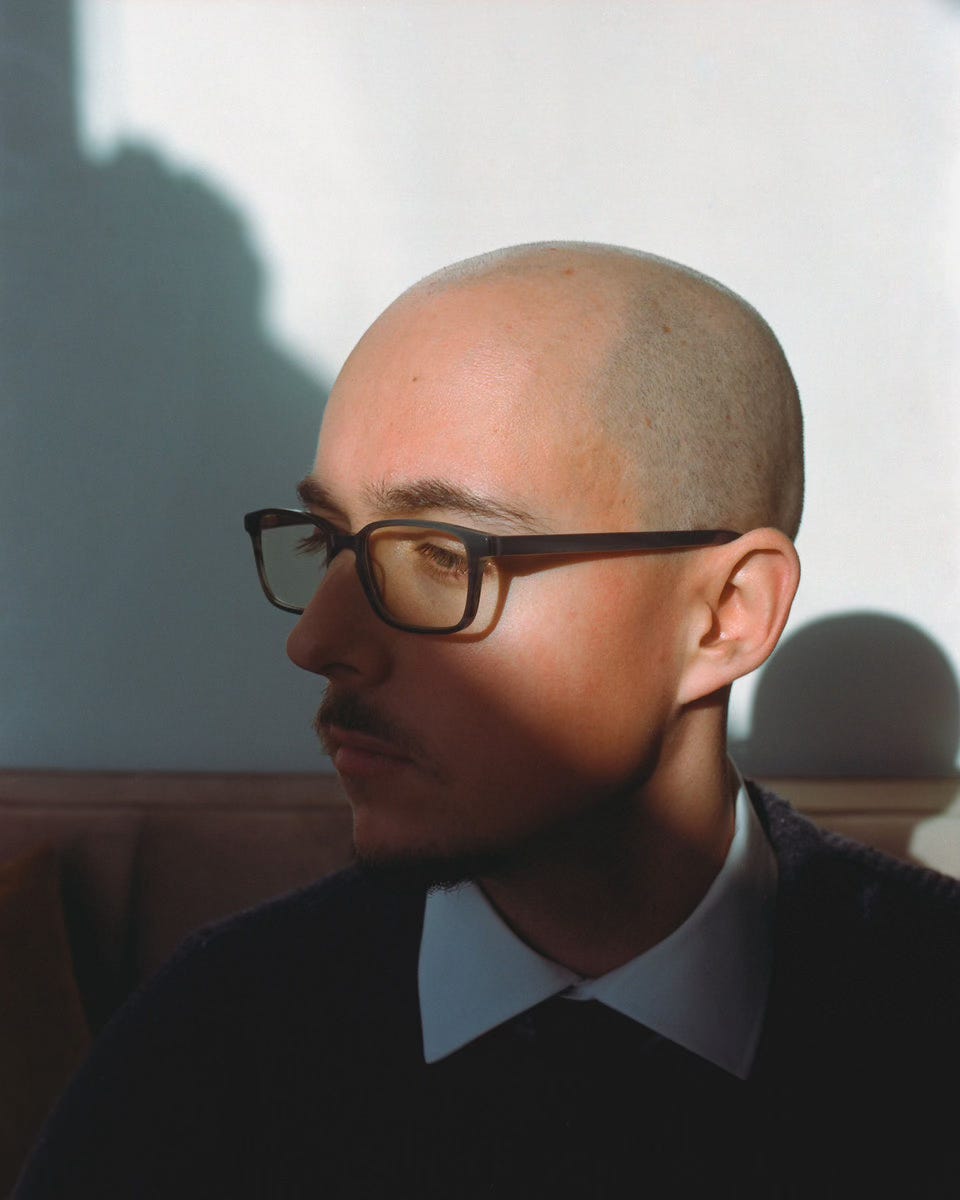Recordings discussed in this post:
Altus: Animus Live (2024) Michael Hudson-Casanova, recorded 2023 at Audio for the Arts; and also Animus (2023)—both records feature MHC, alto saxophone; Erik Skov, guitar; James Davis, trumpet; Gustavo Cortiñas, drums
Disappearing Roads, James Davis, recorded in 2017 at the Whistler, Chicago, released 2018: James Davis, trumpet; Dave Miller, guitar; Rob Clearfield, keyboards; Matt Ulery, bass; Quin Kirchner, drums
So there are several threads and several events here to talk about, but the main event is a new record release by my friend, alto saxophonist Michael Hudson-Casanova, or MHC for short. The album, Altus (a title to make any Latin-obsessed Renaissance scholar happy), is a live show building on the release of Animus last year. But let’s just dive right in with a track:
That’s a new composition, an appealing new approach to Hudson-Casanova’s musical imagination, and the vibe of this band: Erik Skov on guitar (sometimes aided by a looping pedal that allows him to layer his sounds), James Davis on trumpet, and Gustavo Cortiñas on drums.
(Another occasion for this writing is that I will have the pleasure of performing with three out of those four in a quintet at Merrimans’ Playhouse in South Bend tonight. The same group will perform in Chicago at Stola Contemporary on Monday March 11. OK, end of plug!)
You don’t notice it so much in the “Train” track—I think because of the nature of the samba groove—but there’s no bassist in this band, and so Skov is called upon to play more roles than usual. It is sort of the opposite situation of the other wonderful bands I have heard him in, Cortiñas’s Kind Regards/Saludos Afectuosos, and Emily Kuhn’s Ghosts of Us quintet. In those ensembles, not only is there a bassist (Katie Ernst, and Kitt Lyles, respectively), but Meghan Stagl also plays piano.
OK not to geek out too much on this, but one of the things I love about the guitar is the discipline it imposes on performers (compared with pianists, who sometimes seem to me to suffer from having too many options). When you play jazz guitar, you can improvise a line, or you can play a chord, but it is quite challenging to do both at the same time. It’s no problem for a pianist though—two hands! But I love the concentration that guitarists then bring to their performances, where the chords are so meaningfully placed, so thoughtful—whereas it can be easy for the left hand to just drone on for a pianist, and fill in space. When pianists are playing well, the don’t do that, of course. And when a band pairs piano and guitar, it can create even more thoughtful, intense listening, as well as richness of sound—that is certainly the case with those two bands mentioned above.
But then there are bands with two guitars (I have posts in the works on two such bands!) which basically creates the possibility for the same level of baroque verbosity as any piano.
Anyway, here, with no bass, Skov is pushed yet farther in the direction of discipline and choice: now it is up to him to decide how to cover the bassist’s role as well. What it mostly seems to create here is the possibility for more space, more of a certain kind of searching listening. Here is a track that features Skov alone at the start and in majestic lyrical form:
Hudson-Casanova brings a pellucid, rounded sound to his instrument, with startling expressive control. His musical mind is wide-ranging and he has absorbed an enormous amount of vocabulary from old jazz and new and a wide variety of other musical genres. As a composer he is drawn to art that makes small changes significant: making room to allow simple ideas to grow and flower.
A possible source for some of these energies is in the late trumpeter Kenny Wheeler’s compositions and peculiar influence on modern jazz. I had the pleasure of working with Hudson-Casanova on a live performance of Kenny Wheeler’s album Angel Song (1996), and MHC also includes one of the most remarkable Wheeler compositions on this new live record—a tune called “Kind Folk.”
If you don’t know this music, you are in for a treat. Wheeler’s is another unusual ensemble that opens up new spaces for listening, this time by subtracting the drummer. It is also a remarkable meeting of jazz traditions and sensibilities as Lee Konitz, one of the great alto players of all time, finds common ground with a very different generation of improvisers: Bill Frisell on guitar, Dave Holland on bass, and Wheeler himself composing and playing trumpet. Here is an example of a somewhat less well-known composition:
But this is just one touchstone—many other moods and musical realms also shimmer in the background of MHC’s work. As I was driving across Wisconsin yesterday I thought I felt of the feeling of the influential Chicago post-rock band Tortoise:
It’s the combination of groove, simplicity, space, distinctive listening that I’m hearing as a connection. Here’s another MHC example, “Continuum,” built on a sweet figure in 7 that again shows off Cortiñas’s resourcefulness:
Finally I should say a little more about James Davis, who proves a sympathetic partner to Hudson-Casanova’s compositions and his improvising voice on both records, but has a pleasingly expanded roles on this new one. One place this gets shown to superb effect is in “Etude from Another Time,” which, like “Etude for Clementine” on the earlier recording, exploits the possibilities echo and canon in writing and improvisation.
Davis is a gifted composer and valued partner in many musical endeavors on the Chicago scene, and I’ll end by pointing up another live recording from a few years ago, and one of his compositions that I’m excited to play later today in South Bend.




